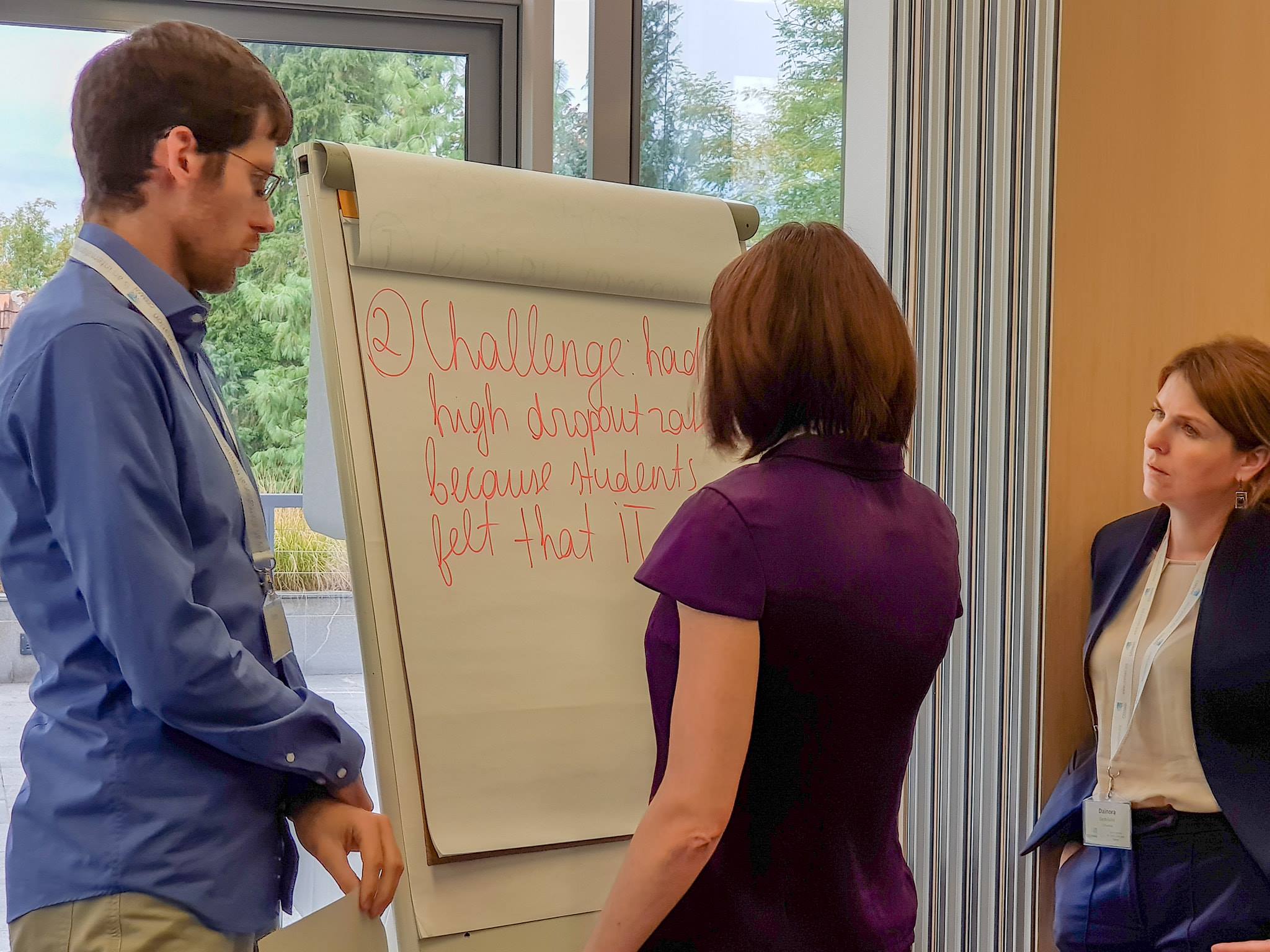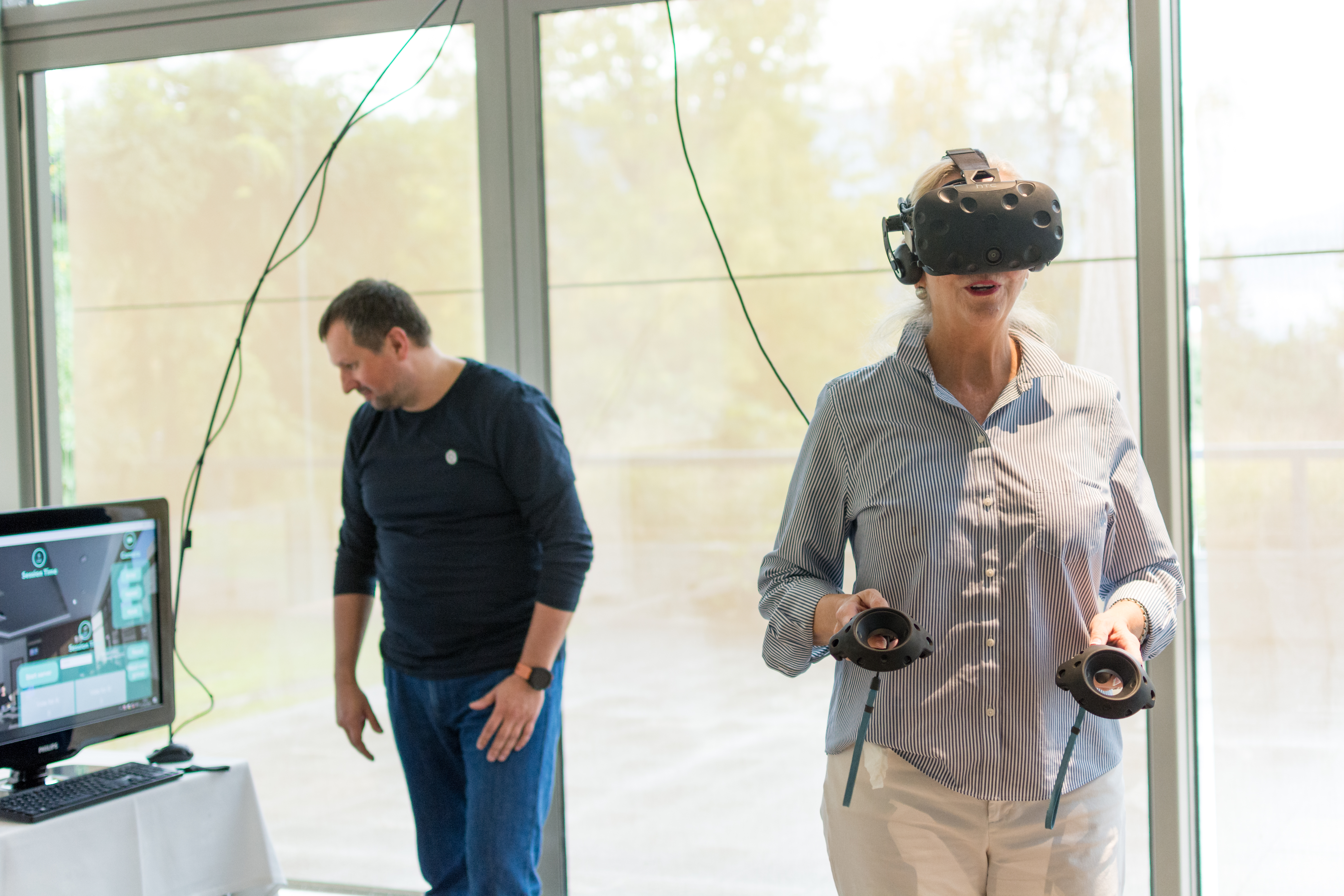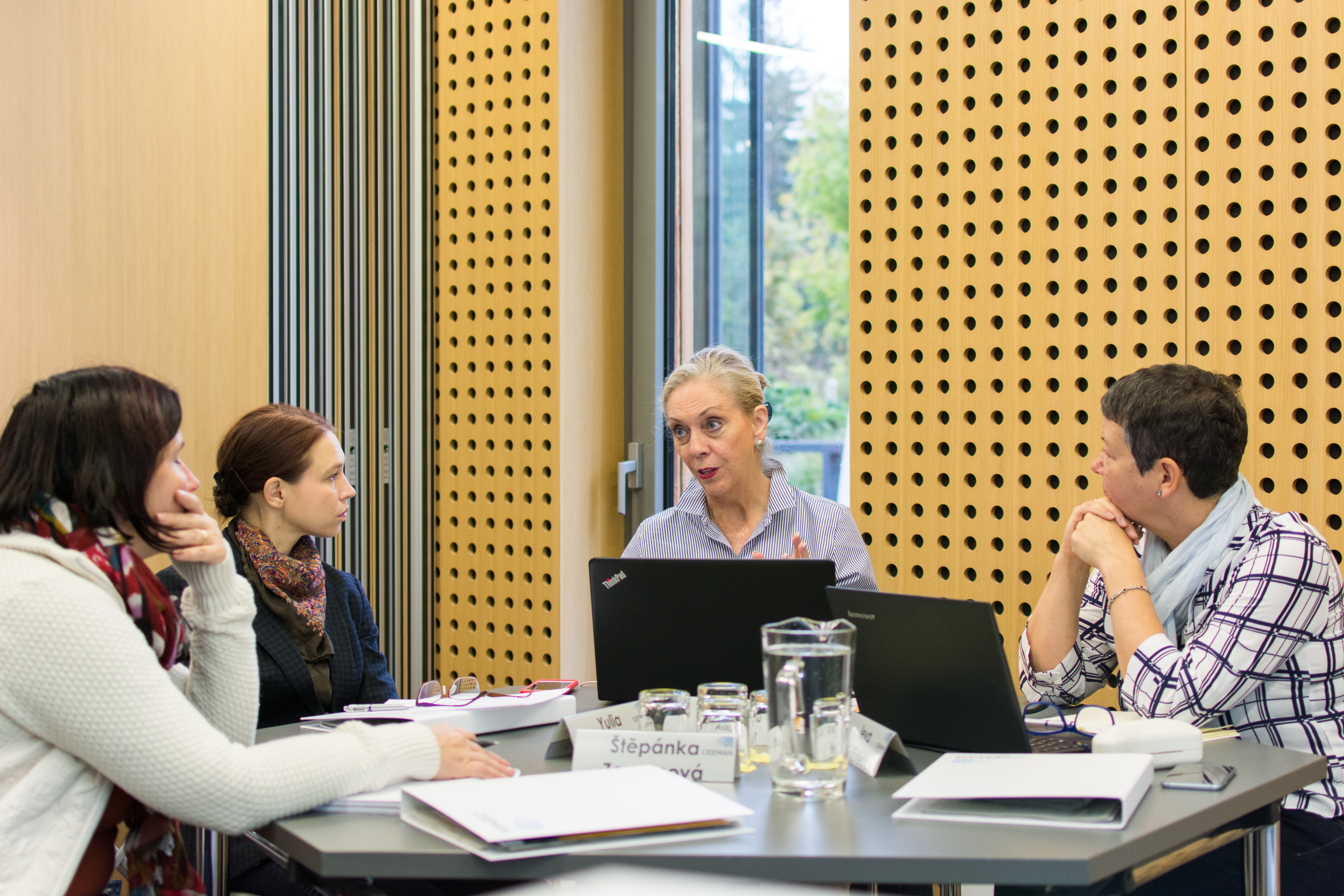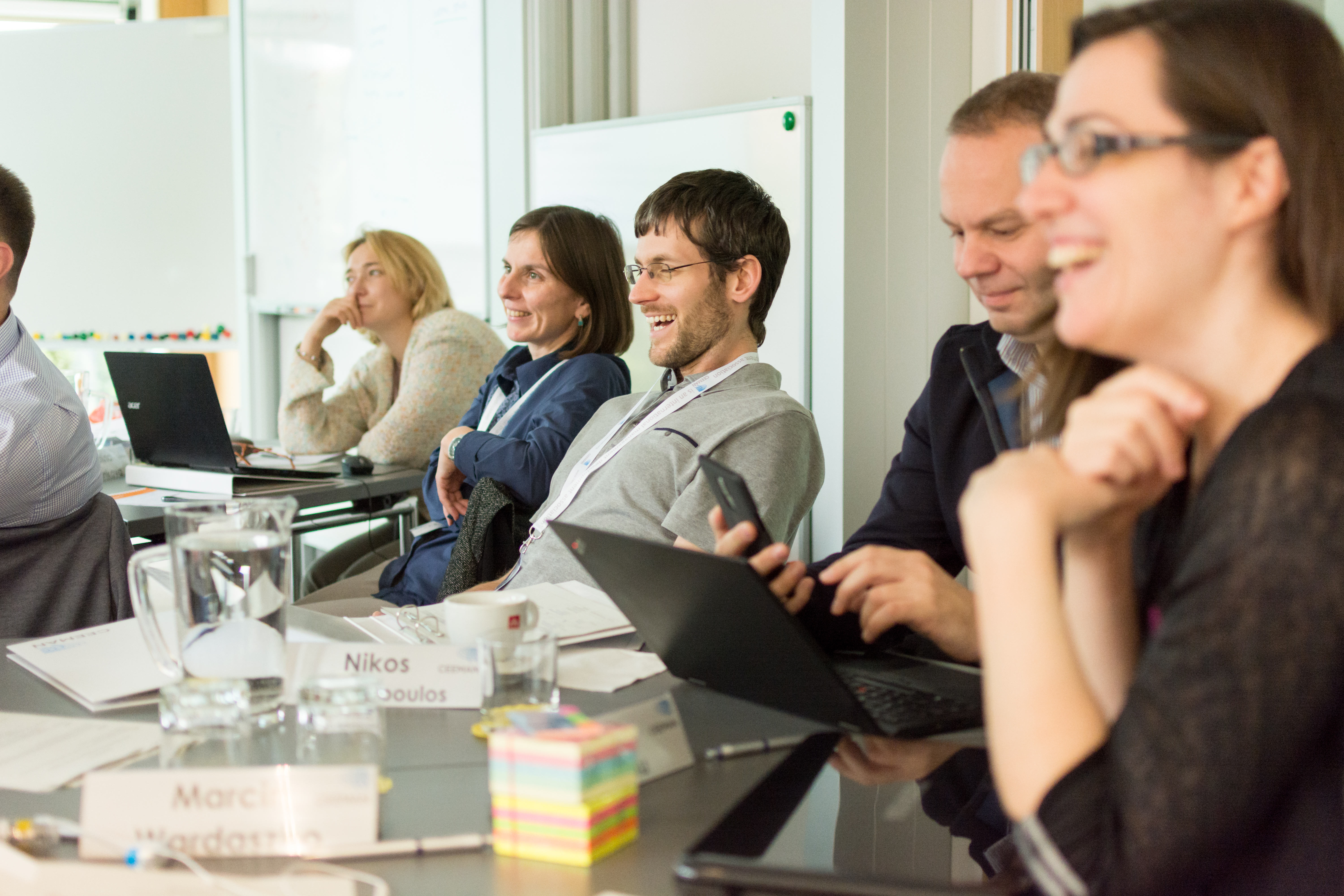“The illiterate of the 21st century will not be those who cannot read and write, but those who cannot learn, unlearn, and relearn.”
--Alvin Toffler, author and futurist
The guides on this journey were three educational leaders who not only acknowledge the disruption happening in traditional academia, they are excited to be disrupters themselves. Nikos Mylonopoulos, associate professor of Digital Business at ALBA Graduate Business School at the American College of Greece, Eleni Lamprou, online faculty member at Laureate Online Education, and Marcin Wardaszko, director of the Center for Simulation Games and Gamification at Kozminski University in Poland, made convincing arguments for attendees to think forward and to disconnect, not just from the past, but from the present, as well. Associate Provost for Digital Learning and Innovation at Boston College, Chris Dellarocas, also dropped by via Zoom to talk to about the commodification of education.
 Dellarocas noted the first disruption to the monopoly that higher education has enjoyed for a century has already happened. The emergence of alternative education providers and platforms like edX, Coursera, Udacity, Future Learn, and others are expanding the concept of what education is and who can provide it. These low cost, scalable, open source platforms offer instant access to anyone with an internet connection. Dellarocas shared a cautionary tale about news and journalism. “Newspaper used to have a monopoly, but when content went digital, news became a commodity.” The implication was clear. Higher education could fall to the same fate as newspapers if educational institutions are unwilling to change their business models and curriculum.
Dellarocas noted the first disruption to the monopoly that higher education has enjoyed for a century has already happened. The emergence of alternative education providers and platforms like edX, Coursera, Udacity, Future Learn, and others are expanding the concept of what education is and who can provide it. These low cost, scalable, open source platforms offer instant access to anyone with an internet connection. Dellarocas shared a cautionary tale about news and journalism. “Newspaper used to have a monopoly, but when content went digital, news became a commodity.” The implication was clear. Higher education could fall to the same fate as newspapers if educational institutions are unwilling to change their business models and curriculum.
 As the academic director of EdTech seminar, Nikos Mylonopoulos stated, “We are educating students today for the next 30 or 40 years. It is our responsibility to look deep into the future, and decide how we are going to best prepare them for that kind of future.” We need to be aware that digitalization is transforming management itself to management 2.0, so it is crucial for educational institutions to offer programs that would serve this new business and management models.
As the academic director of EdTech seminar, Nikos Mylonopoulos stated, “We are educating students today for the next 30 or 40 years. It is our responsibility to look deep into the future, and decide how we are going to best prepare them for that kind of future.” We need to be aware that digitalization is transforming management itself to management 2.0, so it is crucial for educational institutions to offer programs that would serve this new business and management models.
 Over the fast-paced, three-day seminar, Mylonopoulos, Lamprou, and Wardaszko provided directions on how to fully integrate online courses. They also shared examples of why gamification in business education is the wave of the future, and predicted what the elements of the digital era MBA will look like. The seminar wasn’t all heavy thinking and pondering as Wardaszko provided an opportunity for participants to don virtual reality gear and play in another dimension.
Over the fast-paced, three-day seminar, Mylonopoulos, Lamprou, and Wardaszko provided directions on how to fully integrate online courses. They also shared examples of why gamification in business education is the wave of the future, and predicted what the elements of the digital era MBA will look like. The seminar wasn’t all heavy thinking and pondering as Wardaszko provided an opportunity for participants to don virtual reality gear and play in another dimension.
To move from theory to practice, participants were organized into diverse teams working on increasingly detailed challenges in a peer consulting format. Building on strategies, learning models, gamification and developing online learning communities, groups had to present the specific issues they were working on and the solutions they have developed. To make the impact even more practical, participants were working on finding solutions to very specific challenges within their institutions.
 Overall, the three-day conference was an eye-opening, full-throttle exploration of technology-based delivery of education, game learning, and VR technologies. There was a lot to digest for the participants, and everyone walked away knowing that if we, as educators, expect to be relevant in the next ten years, we must be willing to embrace new technologies and provide excellence and relevance in our teaching and research. Ready or not, the future of graduate management education is here, and it does not look anything like the past or the present.
Overall, the three-day conference was an eye-opening, full-throttle exploration of technology-based delivery of education, game learning, and VR technologies. There was a lot to digest for the participants, and everyone walked away knowing that if we, as educators, expect to be relevant in the next ten years, we must be willing to embrace new technologies and provide excellence and relevance in our teaching and research. Ready or not, the future of graduate management education is here, and it does not look anything like the past or the present.
Follow the updates from CEEMAN to save the date for EdTech 2019!